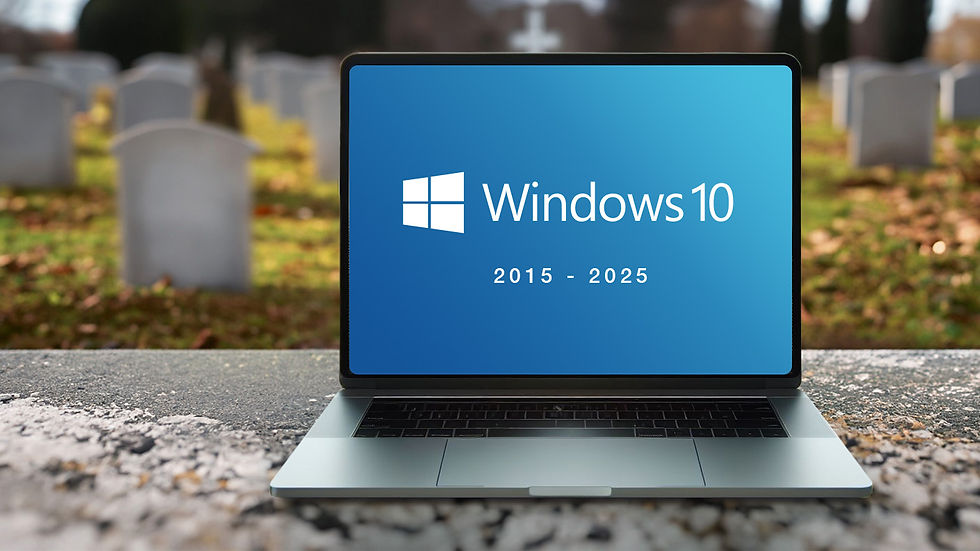Window 10 End-of-Life Compliance & Insurance Exposure
- Oakland Solutions

- Aug 16, 2025
- 2 min read
Using Windows 10 after October 2025 can leave your business open to potential compliance & insurance issues.

Photo courtesy of Ron Lach
📉 Cyber Insurance Implications for Windows 10 End-of-Life
Most cyber insurance policies include specific language requiring that the systems under coverage are actively supported by their vendors, regularly patched, and maintained to a “reasonable security standard.”
After October 14, Windows 10 will no longer receive security updates from Microsoft. From an insurance perspective, that places any Windows 10 device firmly in “unsupported” territory.
In the event of a breach, ransomware attack, or data loss incident involving one of those machines, or even if it’s simply part of the affected network, insurers may:
Deny the claim outright
Reduce the payout
Or reject liability for failing to meet basic security obligations
We’re already seeing more insurers asking businesses to attest that they are not running unsupported software. Others may review systems during underwriting or renewal. Either way, unsupported endpoints present a documented claims risk.
If you hold cyber insurance — or plan to apply — this is a critical factor to address proactively.
🧾 Regulatory & Contractual Compliance Risks
For businesses that handle sensitive data — such as customer records, payment info, intellectual property, or regulated communications — continuing to run Windows 10 can pose compliance risks, even in the absence of an actual security incident.
Most modern data protection frameworks (including GDPR, HIPAA, PCI DSS, and ISO 27001) share a core requirement: that organizations take “reasonable steps” to protect the data they hold.
Using systems known to be unsupported after a public end-of-life date may not meet that threshold.
In the event of an audit, internal review, or legal dispute, the presence of unsupported operating systems could be cited as a failure of due diligence, particularly if those systems play a role in the organisation’s core operations or data handling workflows.
In some industries, client contracts may also require that IT systems be kept current, patched, and supported, making this an issue of legal, not just technical, compliance.
Unsure if this impacts your business? Oakland Solutions can answer your questions.
Give us a call at 248-689-1439 or send us an email at Info@OaklandSolutionsLLC.com
As always, we’ve got your back.
We’ll map out your upgrade path well before the October deadline, and keep your systems secure, fast, and frustration-free.
As always, we’ve got your back.




Comments